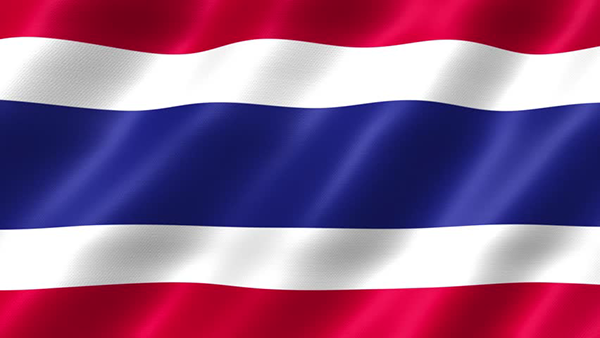Thailand has joined leading global nations by setting the level of THC allowable in hemp to a full 1.0% by dry weight, according to a recent announcement from the country’s Narcotics Control Committee (NCC).
The announcement clarifies earlier confusion over the allowable THC level, revoking and replacing previously considered rules which had variably been reported as setting the THC limit for hemp at maximim 0.1%, 0.2% or 0.3% by weight of the dried plant, including flowers and leaves. The move greatly affects the potential in Thailand’s CBD sector.
Purity & Testing
In addition to meeting the 1.0% maximum THC threshold, CBD products must be at least 99% pure, the rules also state. A separate regulation requires that testing for THC be carried out in an accredited laboratory.
NCC said the THC rule will not be enforced against crops or certified hemp seed that were approved prior to the recent change.
Technically, the changes mean CBD oil extracted from cannabis or hemp is no longer considered as a narcotic under Thailand’s Narcotics Act of 1979.
Among ‘leading nations’
In lifting its THC level to 1.0%, Thailand joins leading hemp nations such as Uruguay, Switzerland and Australia at setting the highest national benchmarks for THC. In nations around the globe where hemp is legal, a 0.3% THC content limit is observed. Most European nations operate under a 0.2% THC benchmark, but EU rules remain muddled.
Thai officials have said their intention is to allow hemp extracts to be used in medicine, cosmetics and food, and to generally support hemp as a cash crop.
While the recent changes may make Thailand look enticing to investors at a glance, it won’t be that easy to tap the country’s hemp potential — particularly with respect to CBD.
Protectionist rules
For starters, the overall regulations as they affect investment, sales, imports, exports and possession of hemp and marijuana extracts are restrictive. The rules do not allow for CBD to be imported until 2024, for example, presumably giving Thai interests a period to establish commercial operations while blocking existing international producers from Thailand’s consumer market of 70 million people.
Also, it’s unclear when Thai consumers will be able to buy CBD. Regulations covering patient access have yet to be written, with initial indications that CBD will require a prescription from one of Thailand’s estimated 1,200 doctors trained in the use of cannabis as a medicine.
Trust issues
CBD producers must obtain cannabis production licenses, which are tightly controlled by the government. At present there are only a few licensed producers in Thailand, among public sector health agencies and university-related hospitals.
Finally the Thai government is not allowing foreign direct investment, meaning CBD players who want to set up operations to make products in Thailand must find a local partner in the public sector — considered rife with corruption. Thailand scored 36/100 in Transparency International’s 2018 Corruption Perception Index, giving its public sector a ranking of 99 out of 180 countries evaluated.
Despite the challenges, several international players say they are on the ground, and venture capital is reported to be moving into the country to support cannabis enterprises.

